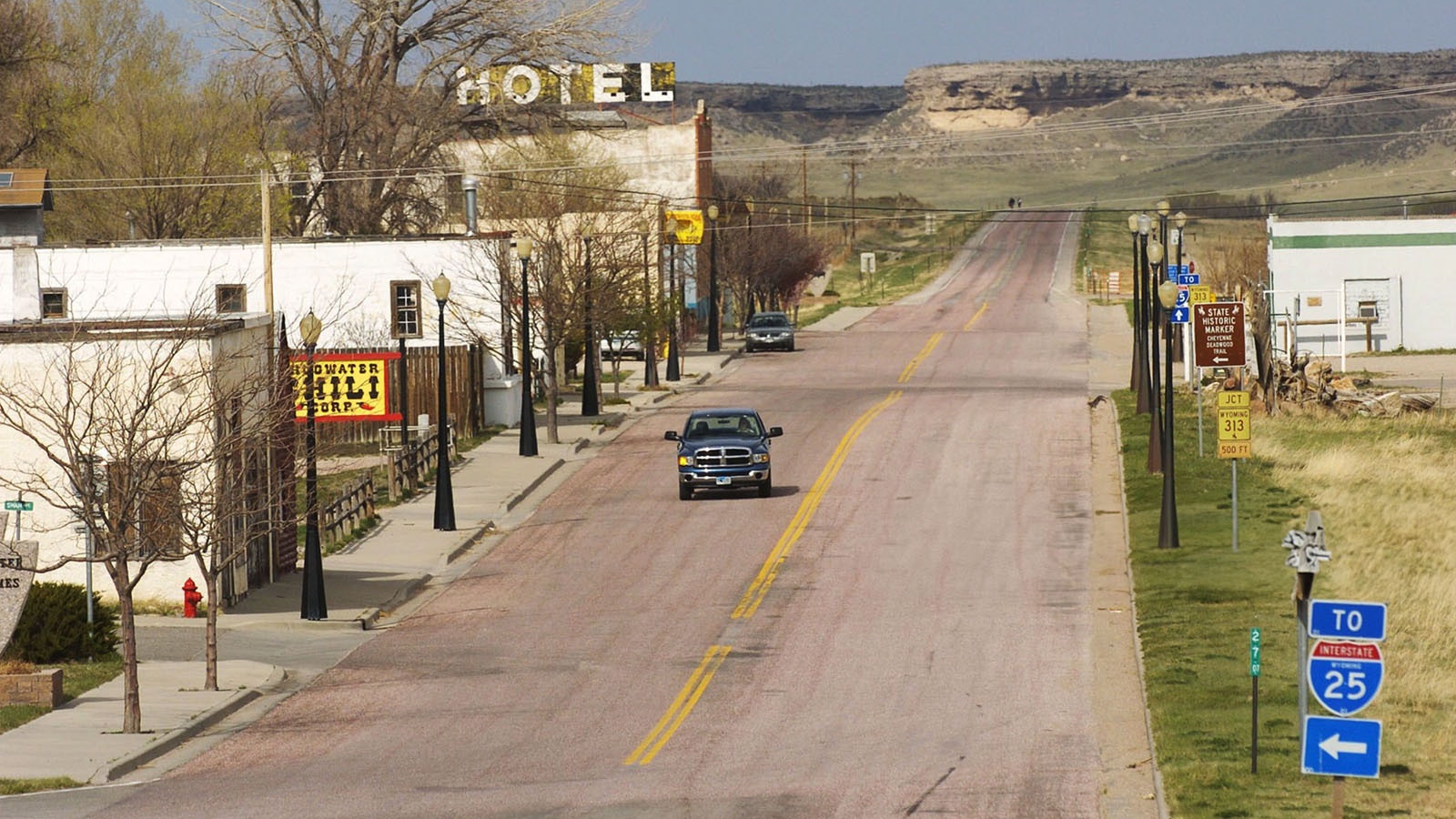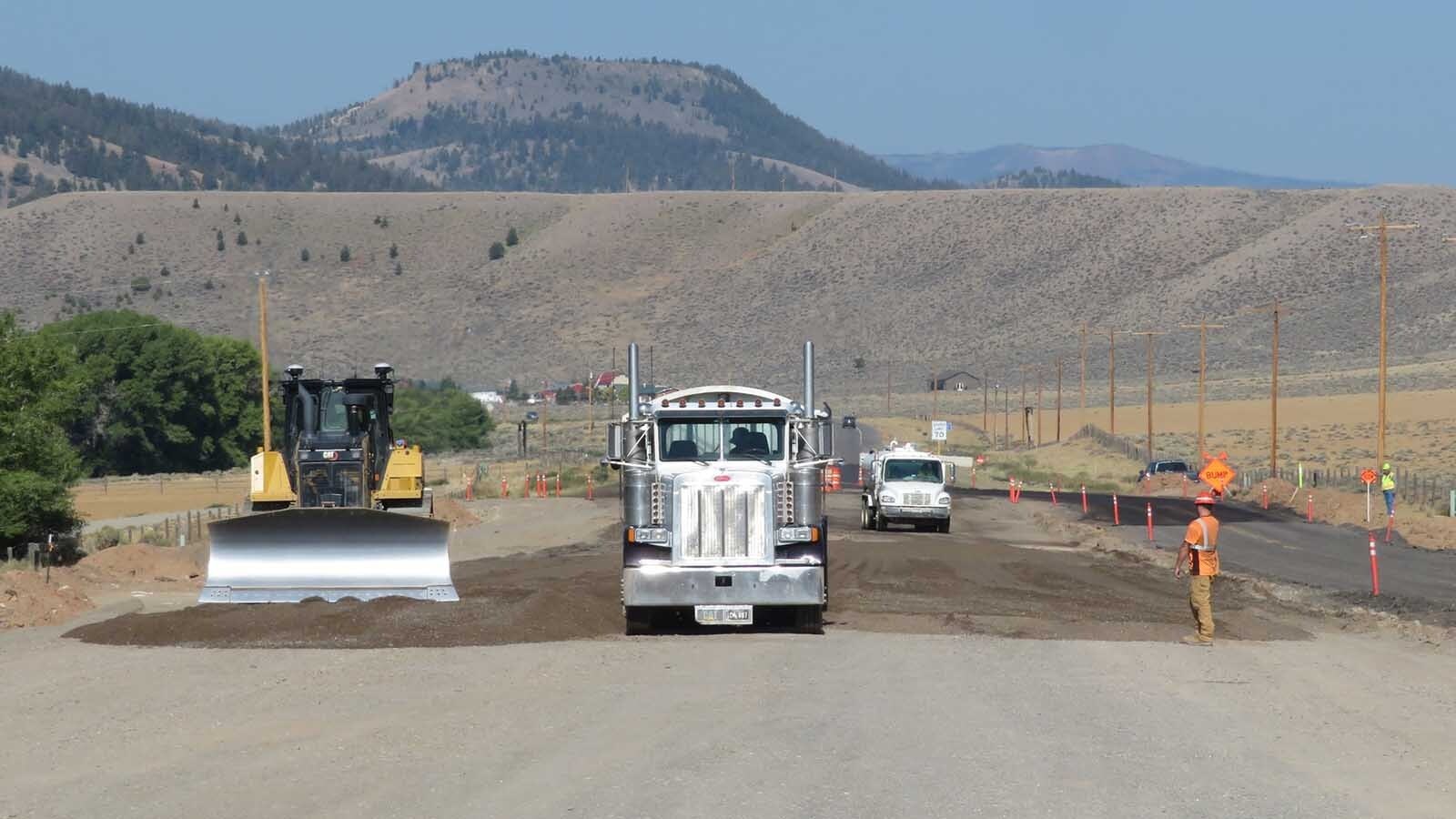The tiny town of Chugwater, Wyoming, (pop. 174) might soon get a lot smaller with three landowners filing a petition to de-annex from the city and taking 172 acres out of the city between them.
The petition to de-annex, on file with Platte County Planning and Zoning, shows the three landowners are Keith Miller, Travis Jorgensen and Jennifer M. Jorgensen.
Miller, who owns the largest parcel in the proposed de-annexation, told Cowboy State Daily that the main reason for the petition is that he and his neighbors don’t get any town water or sewer services. For Miller’s part, if he’s not going to get those, he’d just as soon not fall under any city ordinances.
“You have to go to the state engineer’s office to get permission to drill a well, and then you have to go to the county to get permission to install a septic system,” he said. “So, there’s really no reason to be in the city limits.”
Miller added that it’s not really about being required to pay city taxes for services he doesn’t receive.
“It’s more a matter of not having to be under another set of ordinances and obligations,” he said. “You know, if you have to go to these other agencies to get licensed and things like that, there’s no reason (to stay in the city.) The only thing the city issues is a building permit and, if they can’t provide services, why would they have the authority to issue a building permit?”
Miller told Cowboy State Daily the property he wants to de-annex is about 120 acres. Along with the two other properties petitioned for de-annexation, the area comprises the entire middle-northwest corner of the present town boundaries, just west of Interstate 25 along Bluffs Road.
“It’s all on the opposite side of the interstate, which makes sense,” he said. “It’s all used for agricultural purposes with three houses on it. It’s all agriculture, it’s not platted, and it’s not even zoned really.”

Not Planning A Development
Miller said he has no present plans to develop the property.
“It’s just a matter for me, you know, I think the city would be wise to reconsider and look at de-annexing more of that land that’s in there if they aren’t providing the services,” he said. “Because I think the city’s vulnerable. Somebody could sue them for services.”
That was something Miller said he was thinking about when building his own house and realizing that he could not get city water and sewer services.
“But you know, those people are my friends,” he said. “So, I went ahead and developed my own well and put in my own septic system and got all the permits for it, which was costly to me. Other people may not be so considerate.”
Miller added it’s not that there are any particular city ordinances that bother him.
“My consideration was, do I force the city to develop their infrastructure in that way, and I think somebody could force them to do that,” he said. “But that’s not the reason I’m doing it. It’s a secondary thought. There’s just no sense in leaving your land encumbered by ordinances when there’s no benefit to either the city or the landowner.”
Questions About Impact To Town
Miller told Cowboy State Daily he doesn’t see any reason for the city to oppose the petition to de-annex the three parcels from Chugwater.
However, at least one resident does have some questions about it, like what will the effect be on the town’s property tax revenues, and what percentage of developable land will be leaving the community.
“Our developable land is already significantly less because the interstate cuts right through (the town),” Chugwater resident and business owner Josh Hopkins told Cowboy State Daily. “Then up on the northeast side of town, there’s a whole section of state land that can’t be used in any way for private development. And then there’s kind of a patchworks of, there’s WYDOT property, there’s school property.
“I’m going to add up all the actual acreage of all the developable properties in town to get a real ratio, but as far as the whole area of the town’s 3 square miles, (the land proposed for de-annexation) is something like 0.88% of the land. I mean, it’s 172 acres, so it's not nothing.”
Hopkins said he expects some of the details he’s looking at to be part of the de-annexation study that’s required as part of the process, before Platte County’s commissioners could make a decision on whether to approve taking the land in from the city.
If commissioners approve the petition, it would head back to Chugwater for consideration by town officials.
“There’s essentially a 60-day period in which no action can be taken by the town,” Hopkins told Cowboy State Daily. “So, that’s probably supposed to provide enough time for a proper study and whatever else to be done.”
Based on the timeline of everything else, Hopkins expects the de-annexation could not actually happen until late summer.
“If this whole thing were to just kind of go regularly without being rushed, the first read would probably happen at the June (town council) meeting,” he said. “Then, subsequently, the July meeting would be the second read, if it gets that far. And so, August would be the normal time that the actual de-annexation would occur.”

De-Annexation Uncommon
The process of de-annexing from a town is much less common than the process of petitioning to be in a town, Hopkins said.
“When I’ve called quite a few towns of similar size (to Chugwater) around Wyoming, (what they say) is that many times there are annexations of new land and then it sometimes gets ‘re-de-annexed’ out when they don’t like whatever they’re getting out of it or paying,” Hopkins said. “I called, I think it was Ten Sleep, who said that happened where a guy was in and out, and in and out, and it was just crazy.”
For townsfolk who lie within the original boundary of a city and not in a newly annexed area, Hopkins said he found just one case in Wyoming for cities close to Chugwater’s size. That case was in Lingle.
“It was just one landowner who had a home around the edge of town, and he wanted out,” Hopkins said. “And funny enough, they said at the end of it all he still had to use town services, and pay for them, and follow all the laws of the town, so what was the point, because the county said we can’t do anything for you.
“So, it’s like the relationship is still there, so it just kind of harms everybody.”
Hopkins feels there’s an intangible loss from losing a part of the town’s borders, which he said goes back 105 years in the Cowboy state.
“You’re changing the boundaries of a town that’s 105 years old,” Hopkins said. “That’s a big deal.”
Renée Jean can be reached at renee@cowboystatedaily.com.





